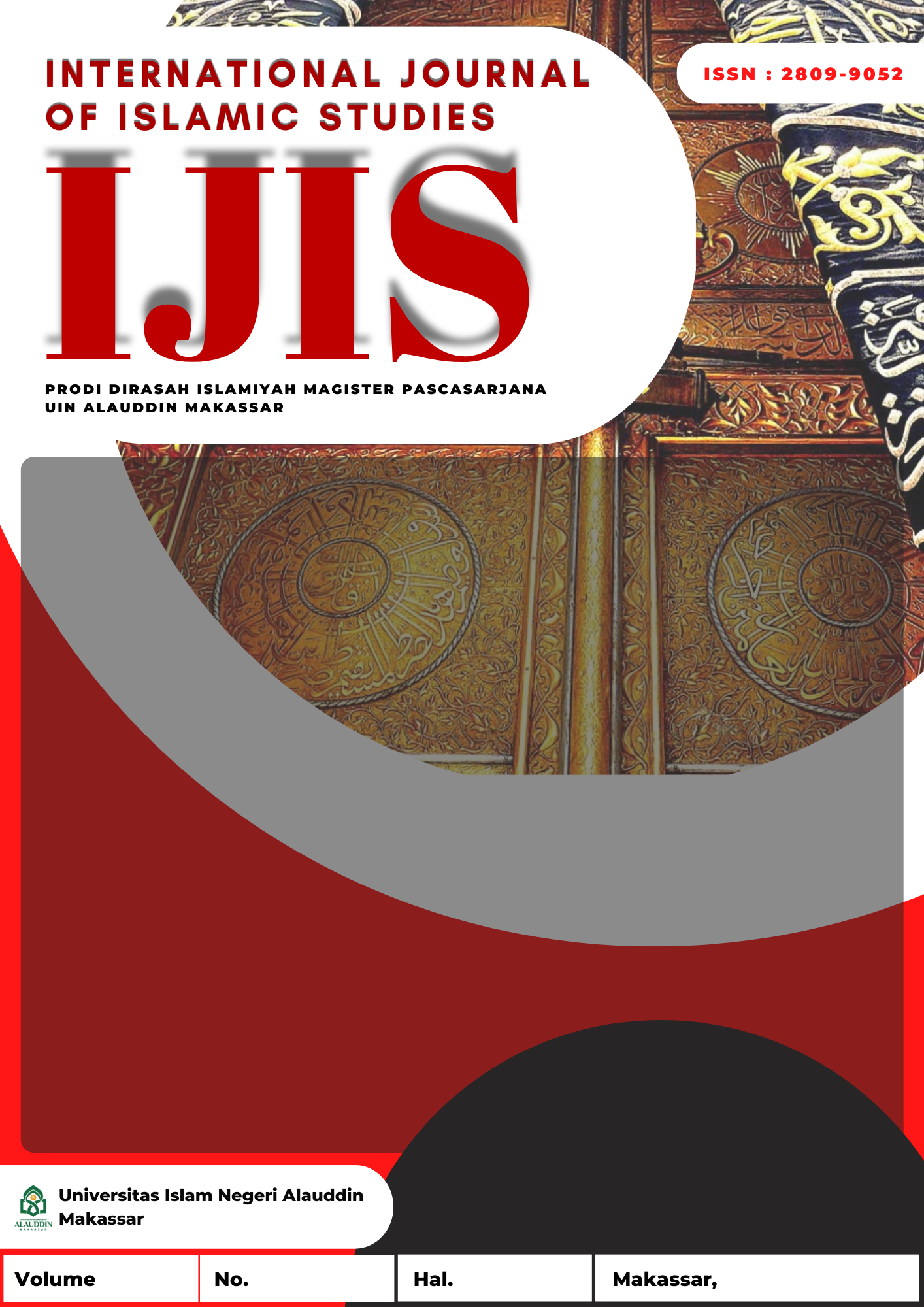The Students (Mahasantri) of Ma’had Aly As’adiyah Perception in Sengkang Regarding The Trustworthiness in The Quran
Abstrak
This research aims to determine the perception of MA'HA Santri (Students) at Al-Aly As'adiyah Islamic Boarding School in Sengkang regarding trustworthiness in the Quran. The research objective is to understand the perception of MA'HA Santri at Al-Aly As'adiyah Sengkang regarding trustworthiness in the Quran, categorizing this study as qualitative field research. Field research uses a contextual and comprehensive approach to explore the meanings, definitions, understanding, events, and lives of individuals directly or indirectly involved in the research subject. According to the students of Ma’had Aly As’adiyah Sengkang, the implementation of trustworthiness has been carried out effectively. The execution of these qualities aligns with the indicators in this study, namely responsibility, transparency, and keeping promises. The students (Mahasantri) at Ma'had Aly As'adiyah Sengkang have applied these indicators in their teaching processes at the campus to achieve quality learning. Implementing trustworthiness in learning by the students at Al-Aly As'adiyah Sengkang can produce high-quality outcomes. Quality learning can enhance knowledge for the future, benefiting oneself and others. However, some MA'HA Santri may still need to improve their trustworthiness in their daily lives.
Referensi
Setiawan, Wahyudi. Reward and Punishment dalam Perspektif Islam, al-Murabbi, Vol, 4, No. 2 (January 2018), p. 184-201.
Aziz. “Reward –Punishment Sebagai Motivasi Pendidikan: Perspektif Barat dan Islam”, Cendikia, Vol.14 No.2 (December 2016), p. 333-349.
Pulungan, Sahmaniar. Wawasan Tentang Amanahdalam al-Qur’an, Disertasi Program Pasca sarjana UIN Syarif Hidayatullah, Vol. 1 (t.p : Jakarta, 2016), p. 100.
Muslim, Mustafa. Mabahis fi al-Tafsir al-Maudu’i. Dimasyq: Dar al-Qalam, 1410 H./1989 M.
Syaikh, Abdullah ibn Muhammad ibn Abdurrahman ibn Ishaq Alu. ”Lubaabut Tafsir Min Ibni Katsir”, Terj. M. Abdul Ghoffar EM. Dkk. Cet. I, Jakarta: Pustaka Imam Asy-Syafi`I, 2008.
Khan, Abdul Wahid. Rasulullah Dimata Sarjana Barat. Yogyakarta: Mitra Pustaka, 2002), p. 80.
M. Munir dan Wahyu Ilaihi. Manajemen Dakwah. Cet. IV; Jakarta: Kencana, 2015.
Pusat Dakwah Islamiyah Kementrian Hal Ehwal Ugama. Jujur, Amanahdan Bijaksana dalam Pekerjaan. Cet. I, Brunei Darussalam, 1999.
al-Munawar, Said Agil Husin. Al-Qur’an Membangun Tradisi Kesalehan Hakiki. Cet. IV; Jakarta: Ciputat Press, 2005.
Kamaluddin, Laode. Rahasia Bisnis Rasulullah. Cimahi: Wisata Ruhani, 2007.
al-Mawardi, Abu al-Hasan Ali al-Bashri. Etikaku Mahkotaku Wacana Pembentukan Kepribadian Prima, Penerjemah Abu Abdul Bari. Cet. I, Cengkareng: Jendral Ilmu, 2002.
Raharjo, M. Dawam. Ensiklopedi Al-Qu‟ran: Tafsir Sosial Berdasarkan Konsep-konsep Kunci. Jakarta: Paramadina, 1996.
Shihab, M. Quraish .Tafsir al-Misbah, Pesan, Kesan dan Keserasian Al-Qur‟an. Vol. 2,Cet. III, Jakarta: Lentera Hati, 2005.
Muhammad, Husein. Wasiat Taqwa Ulama‟-ulama‟ al-Azhar-Kairo. Jakarta: Bulan Bintang, 1986.
Hambal, Abu Abdillah Ahmad ibn Muhammad ibn Hambal, Musnad Ahmad ibn. Juz. III. Cet. I; Beirut: „Alam al-Kutub, 1419 H./1998 M.
Khairullah. “Peran dan Tanggung Jawab Manusia dalam Al-Qur’an”.
Nawawi, Rif’at Syauqi. Kepribadian Qur’ani. Jakarta: Amzah, 2011.
Al-Misri, Mahmud. Manajemen Akhlak Shalaf. Solo: Pustaka Amanah, 2007.
Sugiyono.Metode Penelitian Pendidikan. Cet.VI; Bandung: Alfabeta, 2009.
##submission.copyrightStatement##
##submission.license.cc.by-nc-sa4.footer##Authors who publish with this journal agree to the following terms:
1) Authors retain copyright and grant the journal right of first publication with the work simultaneously licensed under a Creative Commons Attribution License that allows others to share the work with an acknowledgement of the work's authorship and initial publication in this journal.
2) Authors are able to enter into separate, additional contractual arrangements for the non-exclusive distribution of the journal's published version of the work (e.g., post it to an institutional repository or publish it in a book), with an acknowledgement of its initial publication in this journal.
3)Authors are permitted and encouraged to post their work online (e.g., in institutional repositories or on their website) prior to and during the submission process, as it can lead to productive exchanges, as well as earlier and greater citation of published work (See The Effect of Open Access).







